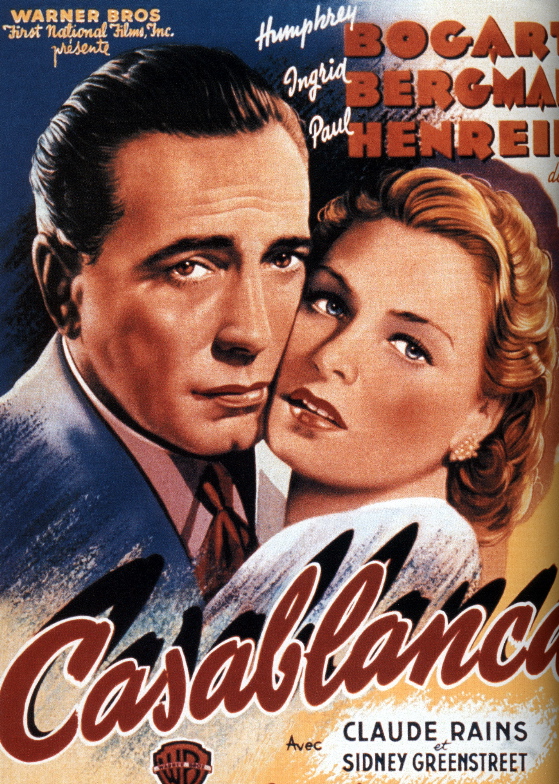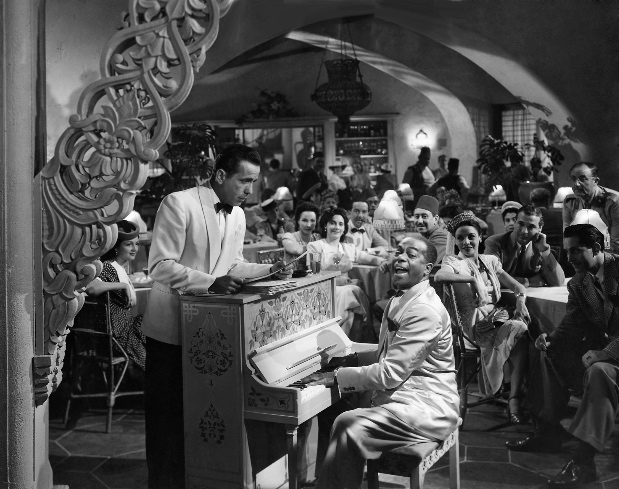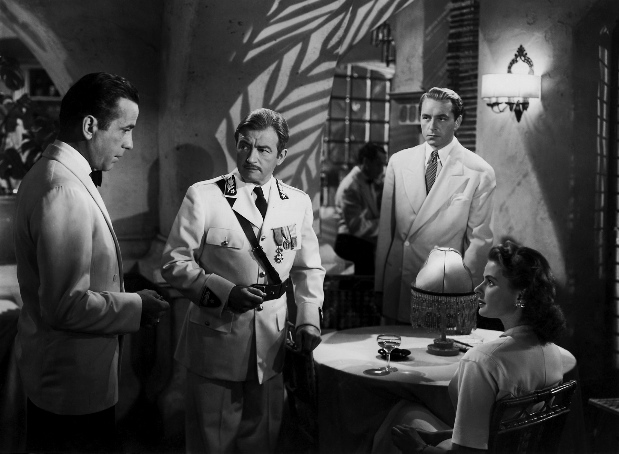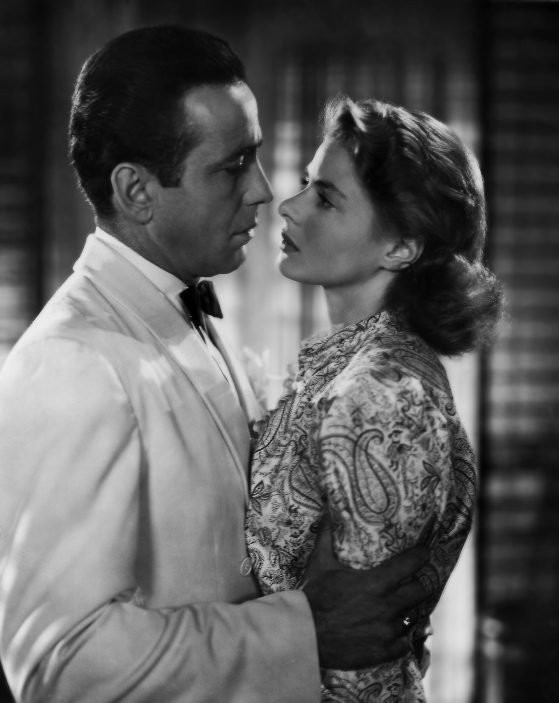
Casablanca
is a genuinely miraculous film, one of the few Hollywood masterpieces
that really was created by committee. The script incorporated the
work of six principle writers, who had lots of editorial
supervision. One of the film's most memorable lines, “Here's
looking at you, kid,” was reportedly contributed during filming by the
actor who spoke it, Humphrey Bogart, and supervising producer Hal B.
Wallis wrote the famous last line, “Louie, I think this is the
beginning of a beautiful friendship”, which was added as a wild line
after principal photography ended.
If the film has a nominal auteur
it would have to be Wallis, who organized the collective that made the
film and generally had the last word on what became part of the final
product. Jack Warner, the head of the studio, made only one
creative suggestion — to cast George Raft in the Bogart role, an idea
that would have made the film the instantly forgettable potboiler it
might easily have become. Wallis talked Warner out of the idea,
but he had some bad ideas of his own, including turning Sam into a
female African-American — but Wallis himself got talked out of these ideas in
turn.

The film's director, Michael Curtiz, was known as a great “director of
scenes”, with a sure sense of pacing, but he spoke English badly and
apparently had no sense of story construction. It was Wallis who
“constructed” Casablanca.
One of the delights of the film is its multifaceted quality. The
play it's based on provides the milieu of the story and some of its
dramatic highlights, but has none of the elements that make the film an
enduring classic. The screenwriting Epstein brothers provided
most of the witty dialogue and writer Howard Koch pushed its political themes
to the fore, but I would argue that it was another writer, Casey Robinson, who didn't
receive credit, who supplied the glue that made Casablanca cohere.
It was Robinson who wrote the principal love scenes between Bogart and
Bergman, developing Bergman's character into the emotional center of
the film. He gave Bergman the opportunity to supply the film with
its heart. Without Bergman's performance the film would be
nothing more than a diverting programmer with an admirable “message”.

The sheer acting craft on display in Casablanca
is stunning, but most of it is just that — craft. Bergman brings
an emotional commitment to her role that's of a different order.
She suggests an inner life that is mysterious, complex, fully
rounded. It's through her eyes that Bogart becomes sexy, that
Henreid becomes admirable, that the dangers of Casablanca become real.
The film's narrative promises much in the way of romance and intrigue and
adventure, but Bergman is all those promises fulfilled. Audiences
loved Bogart and accepted him as a romantic leading man because he held his
own with Bergman in this film, tried to expose himself to her
emotionally on her level and often enough succeeded. Study his expression, his eyes,
in the very brief close-up of Bogart taking his last look at Bergman's
face on the airfield — it's devastating, a moment of total
exposure. By the same token, we recoil at Henreid's Victor Lazlo
because he never opens himself to Ilsa, because he stands on idealism
and form even when gazing into her miraculous eyes.

Roger Ebert has pointed out how Bergman could paint an actor's face
with her eyes — we can see her trying to penetrate his being, and in
the process she gives him being. It's the alchemy of romantic love incarnated. We instinctively despise any
leading man who doesn't treasure her for this, we instinctively admire any leading man who does.
The ending of Casablanca is
morally thrilling, glamorizing virtue and sacrifice, but it would be
little more than a literary gesture without Bergman's presence, without
Bogart's appreciation of her presence. His sacrifice of it breaks
our hearts over and over again because we feel it as our own
sacrifice. By that point in the film she's become every great love that anybody has ever lost and
we hate to see her go — always have, always will. Ingrid Bergman
is the true author of the miracle of Casablanca.

Hey Lloyd. Just discovered your Film Reviews section, and I am mightily impressed. This has to be the most interesting review of Casablanca I have read, and your discussion of the Bergman persona is a revelation.
Something I recently discovered while listening to the OST album (1997), is how wonderfully the musical motif of Time Goes By underpins the scenes with Elsa and Rick.
Tony
Sorry for typos! Of course As time Goes By and Ilsa not Elsa.
Thanks for the kind words, Tony! And thanks for the ongoing dialogue about film noir, which keeps me on my toes!